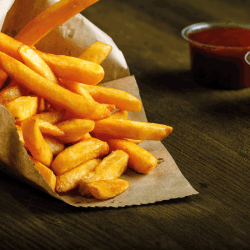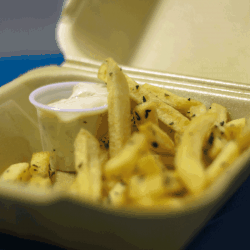You often find yourself with too much leftover oil when cooking fried food. Chicken and fries often go hand in hand as meal staples, so you must be wondering if you can save your fries' oil and use them for cooking chicken--or vice versa. We have researched the best way you can do this while keeping your fried food superb!
You can fry chicken and fries in the same oil, but it is best to cook your fries first before frying your chicken. Your fries can have an aftertaste of chicken, especially if you seasoned it before frying. You will also reduce the hassle of picking up stray chicken bits before frying your fries, and it will save you more time!
Having too much oil on our hands makes it tempting to reuse even after a number of frying and cooking. If you want to learn effective ways you can reuse your oil, keep reading below!
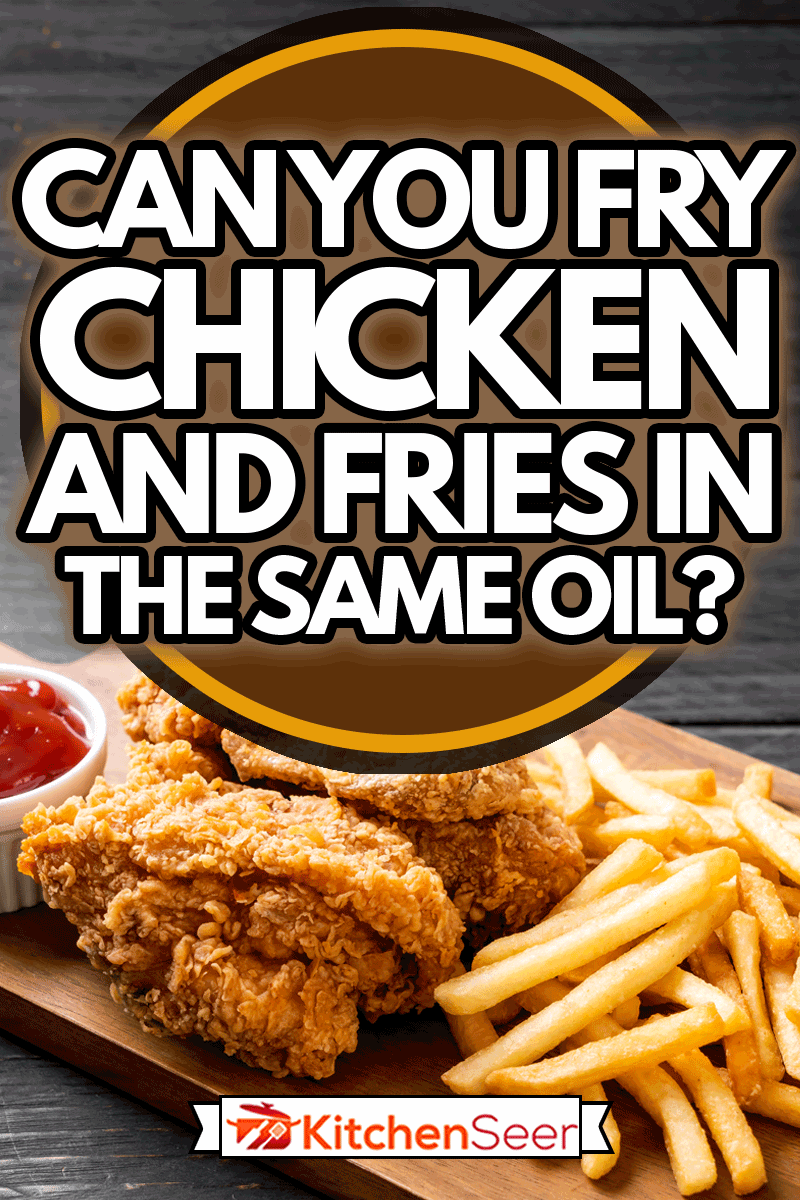
Can you Fry Chicken and Fries in the Same Oil?
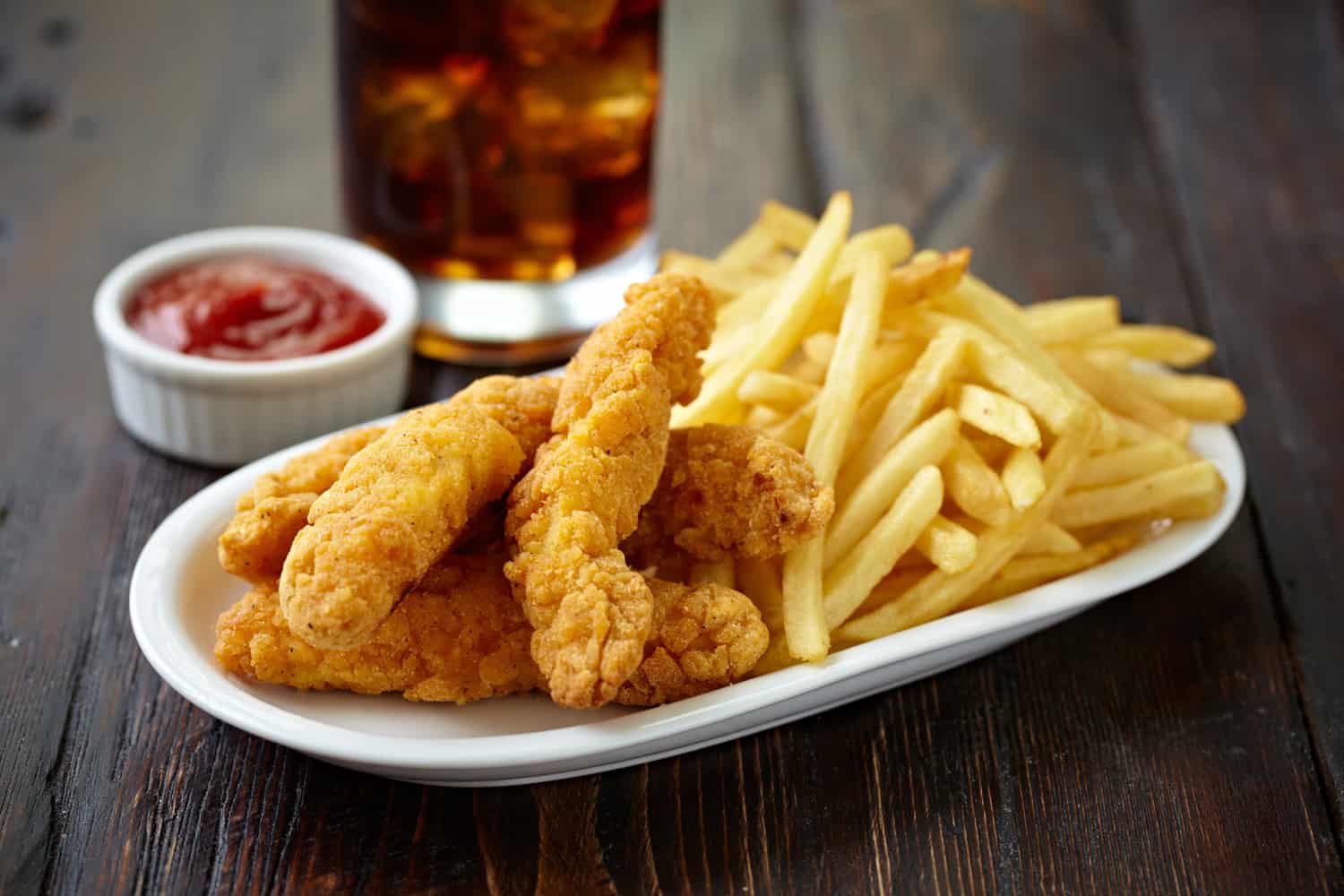
You can fry your chicken and fries in the same oil, but you will need to wait until the oil is slightly cooled before throwing in your fries or chicken. This will ensure that your food will be fine and crispy when you're done.
How to Properly Reuse Cooking Oil
It can be quite tempting to keep reusing your cooking oil after frying large batches of food. However, you need to be careful in storing these leftover oils. Not only can it affect the food's flavor, but it can also be exposed to harmful free radicals.
If not properly stored, the oil will be oxidized. This means that as the cooking oil gets exposed to light, air, and heat, it will create excess, which makes the oil rancid.
Reusing cooking oil multiple times will also cause inflammation within your body and make you vulnerable to heart disease, obesity, and food poisoning.
Here is how you can avoid these things and enjoy your fried food risk-free
Find the best cooking oil for reusing
You will need to get a cooking oil that will retain its qualities even under high temperatures. A high smoking point should be above 400° F; anything below that will not be ideal for reuse.
Opt for canola oil, avocado oil, sesame oil, sunflower, or grapeseed oils, as they have a high smoking point.
Allow the oil temperature to go down
Oil can keep cooking even after a minute or two after you have turned off your stove. After frying, turn off your stove immediately and let the temperature go down.
You need to cool the temperature first so that when you fry your chicken or fries in it, it will not be burnt on the outside and raw or mushy on the inside.
Read: "How Long To Cook Chicken In A Pressure Cooker?"
Fry your food properly
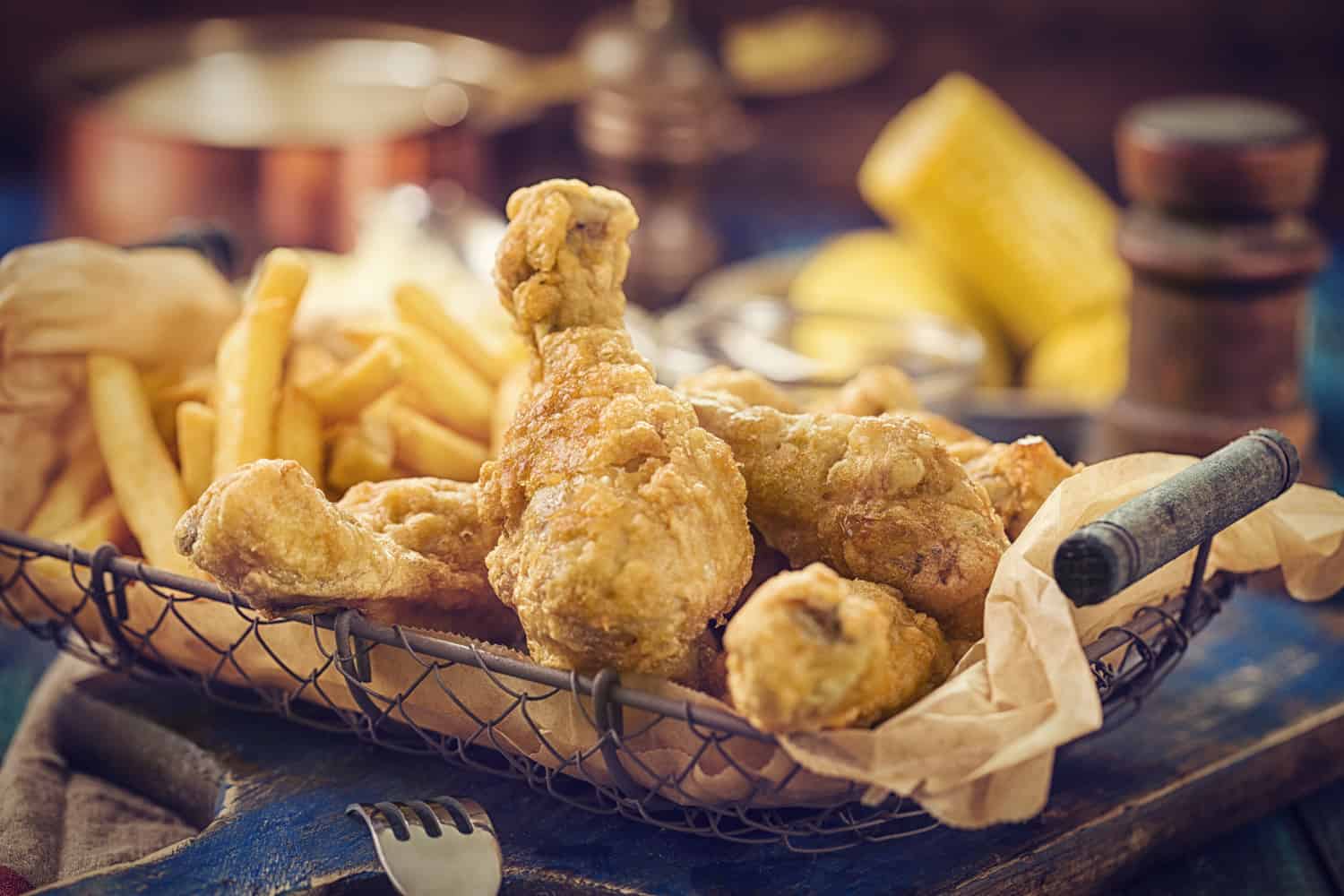
Once the temperature is down, you can throw in your fries or chicken. However, there is a proper way of frying in used oil that can retain flavor and texture.
- Allow the oil to cool for a few minutes.
- Cook on low heat, then put your food in.
- After throwing in your food, increase the heat gradually. Do not immediately fry in high heat because this can cause the food to have a soggy consistency.
Read: "Onion Rings Vs. French Fries: Which To Choose?"
Filter out the leftover bits
Be sure to strain the oil in a cheesecloth to get rid of tiny scraps of meat that might burn when you reuse the oil.
The bitterness of the burnt scraps may infuse into your food and make it have an awful aftertaste, so keep an eye out for these small bits.
Check out this cheesecloth on Amazon.
Keep the oil in a sealed bottle
Store the oil in a glass jar to keep it away from tiny particles that may compromise it. Dirt, insects, and moisture can ruin the integrity of your oil and ruin your food the next time you use it.
Stay away from flammable or heat sources
Keep it away from the stove, even if it seems convenient. Exposing the oil to too much heat will make oxidize it faster and develop harmful free radicals.
Oil retains its quality if it resists reacting to oxygen and breaking down. If a cooking oil breaks down, it will release fatty acids which can lead to heart disease or cancer.
Store in a fridge or a cabinet
Keep your cooking oil stored away from heat exposure. You can also keep it in the fridge but be sure it won't freeze. A properly-sealed container will prevent bacteria from growing in the oil, and it will be able to withstand moisture.
Keep your oils separated
If you happen to reuse oils that were used to fry different types of food, it is best to keep them separated. This is so you can avoid potential flavor overlaps, especially if you used one to fry fish.
How Many Times Can You Reuse Oil?
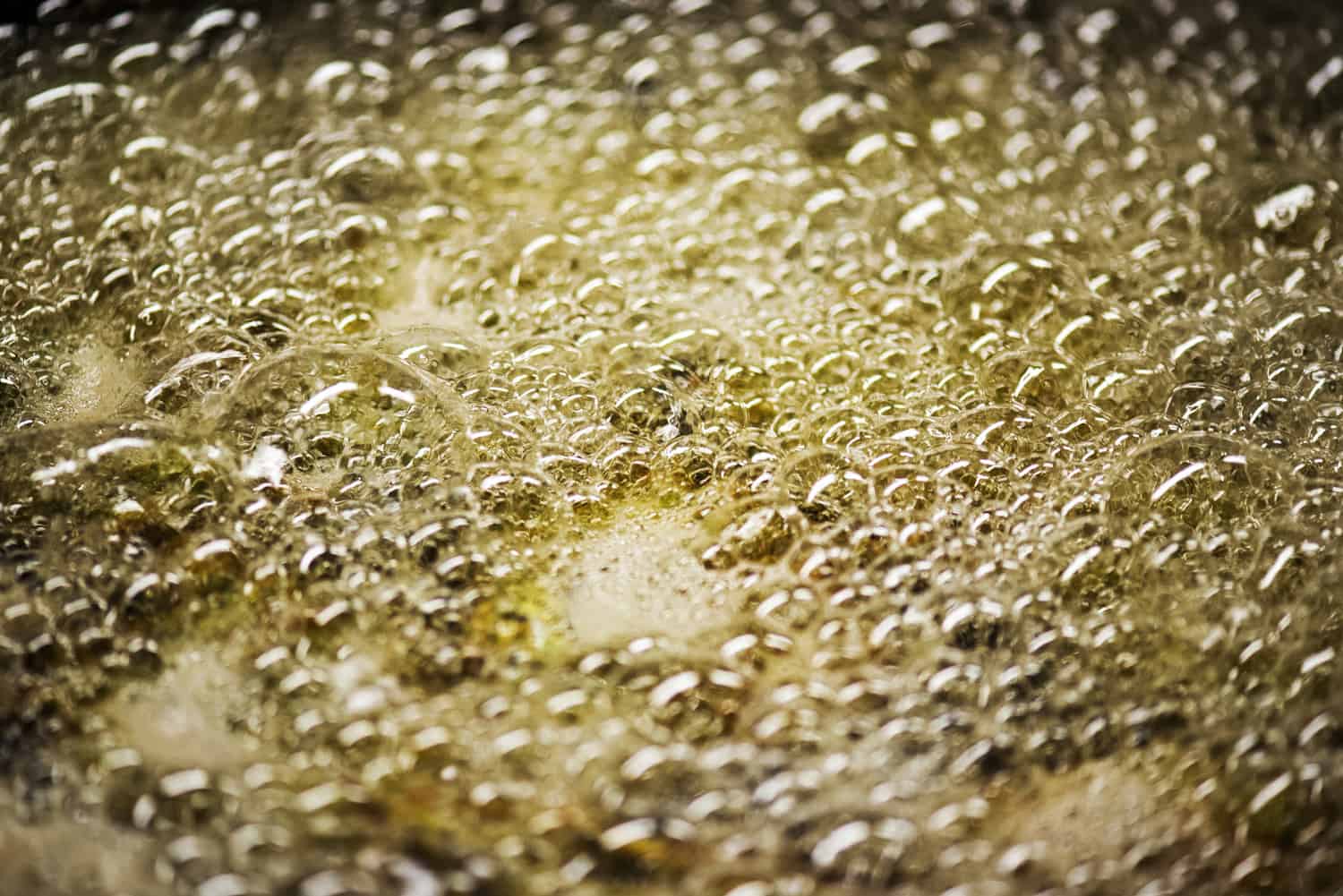
Ideally, you should only use fresh oil every time. However, that is not always economical. The amount of times you can reuse your oil depends on what type of food you use it to cook with.
If you used your oil to fry fish, you can only reuse it only once, and it should be with other seafood.
Chicken and fries have more allowance. You can reuse it 3-4 times, but you need to trust your senses with regard to its quality. If the oil is too dark, has a sour or bitter smell, has a rancid taste, or has grown a film on top, you need to throw it out. Healthy cooking oil should retain its neutral appearance and smell before you cook anything in it.
Can you mix old and new cooking oil?
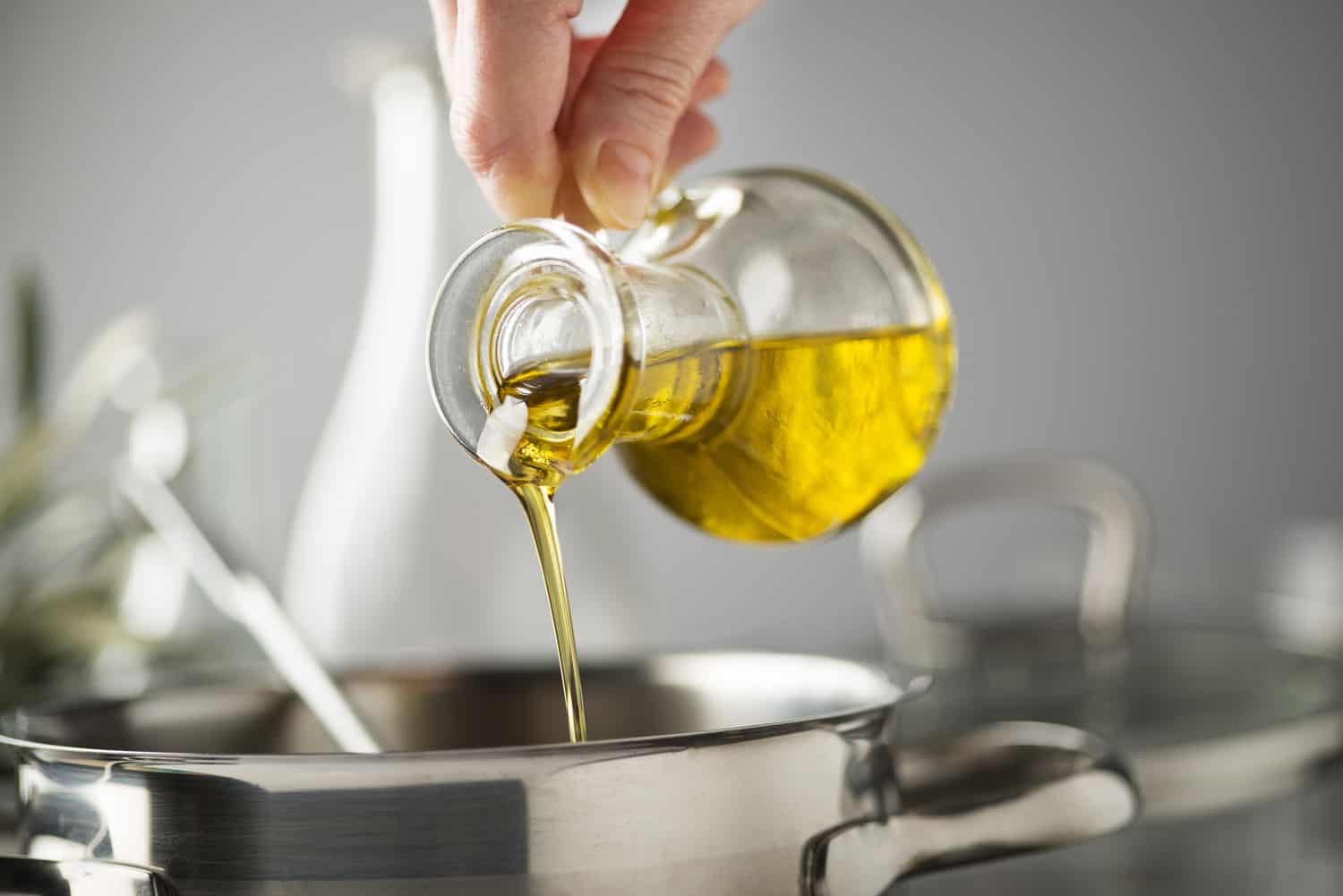
Multiple sources say that mixing new oil with old oil makes the food tastier. The reason might be that some flavor has embedded itself onto the oil, so it latches itself onto the food you are frying. However, this is only possible if you are either frying the same food or if the flavors can blend together.
Can you Mix Olive Oil and Canola Oil?
Olive oil may be healthier, but it does not cook well. Mixing it with Canola oil makes the food cooks faster and, at the same time, allows the flavor of olive to infuse with your food.
How to Discard old cooking oil
Once you notice that your cooking oil has gone bad, it is time to dispose of it. However, you can't just mindlessly throw it in the trash since it could clog water systems or harm aquatic life.
Here are some eco-conscious ways you can throw out your cooking oil.
Turn into solid waste
Mix the old oil with absorbent food materials such as flour, sawdust, or even a spoiled meat pad. You can also solidify it in the fridge before dumping it in the trash.
Get a grease disposal system
This is ideal if you bring out large amounts of oil daily. These foil-lined bags can contain up to 32 ounces of oil which you can seal up safely and throw out.
Pour the oil into a non-recyclable sealed container
Thames Water recommends that you seal up your used oil before throwing it in the trash. The idea is to collect it in airtight jars, let itcool down, throw them, and let the professionals handle them.
However, this is only recommended if you live in a city with systems in place that will effectively collect and dispose of these oils in an environmentally safe way.
Look for a biofuel center
If your area has a nearby center that actively looks for biofuel material, you can collect these old cooking oils and deliver them to a biofuel facility. That way, you can possibly turn your waste into renewable energy.
Pour into a compost bin
One of the most effective and eco-effective ways you can dispose of cooking oil is to just pour it into your compost pile. That way, the oxidized oil can somehow still nourish the soil, and no aquatic life can be harmed.
What Not To Do When Disposing of cooking Oil
Avoid pouring old oil down the sink or dumping raw oil in the garbage can. These methods can harm your water system and attract insects around your yard, which can be a potential health risk.
Final Thoughts
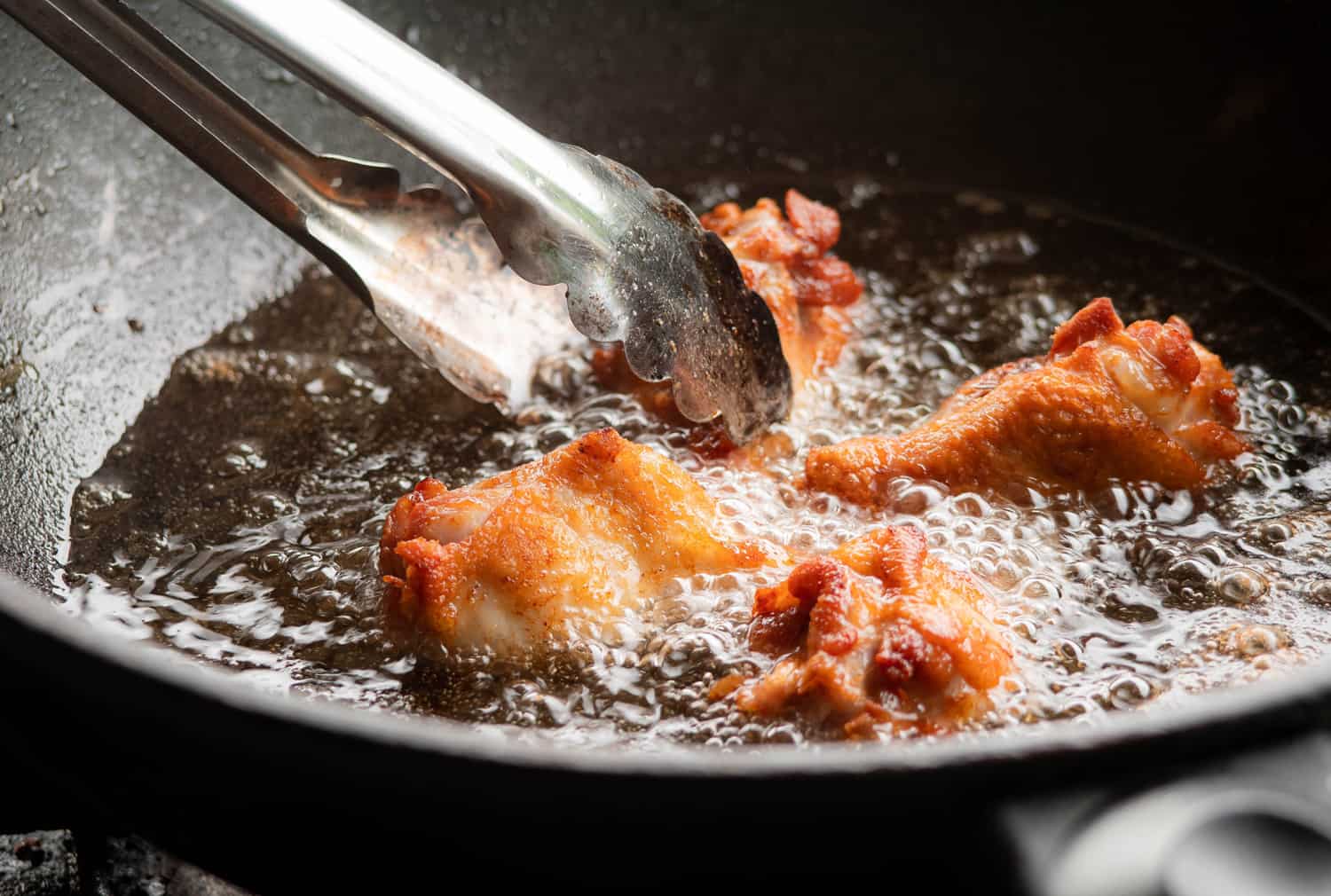
Frying food is a tasty and convenient way to cook your food. Reusing your oil can be economical and sometimes even a great idea to add flavor, but be sure that it is free of harmful particles and bacteria so you can enjoy your food risk-free.


![A bowl filled with fresh french fries, How Big Is A Serving Of French Fries? [And How Many Fries Are In One?]](https://kitchenseer.com/wp-content/uploads/2021/09/A-bowl-filled-with-fresh-french-fries-250x250.jpg)
